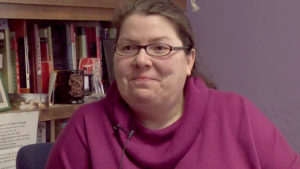An attorney defending Mississippi’s controversial law allowing state employees to refuse to issue marriage licenses to same-sex couples and various businesses to deny services to LGBT individuals claimed in federal court April 3 that individuals challenging the statute should not be allowed to sue the state because they have not suffered actual harm.
Attorney Jonathan Mitchell asked a three-judge panel of the Fifth U.S. Circuit Court of Appeals in Lubbock, Texas, to lift a 2016 court order blocking implementation of House Bill 1523, signed into law by Gov. Phil Bryant and backed by leaders of the Mississippi Baptist Convention.
The bill, titled the Protecting Freedom of Conscience From Government Discrimination Act, grants special legal protection for “sincerely held religious beliefs or moral convictions” that marriage “is or should be recognized as the union of one man and one woman,” that “sexual relations are properly reserved to such a marriage” and that binary labels of male and female “refer to an individual’s immutable biological sex as objectively determined by anatomy and genetics at time of birth.”
Critics say it is hands-down the most discriminatory of so-called religious liberty laws introduced in state legislatures across the country in response to the U.S. Supreme Court’s legalization of same-sex marriage in 2015.
Plaintiffs in the lawsuit claim the law violates the First Amendment’s Establishment Clause, because it singles out some religious beliefs for protection while leaving others unprotected, and the Equal Protection Clause of the 14th Amendment, because it authorizes arbitrary discrimination against lesbian, gay, transgender and unmarried persons.
Regarded the most conservative of the federal courts of appeal, observers were surprised at the pushback Mitchell received when he maintained the 12 plaintiffs challenging the law lack legal standing because the law never took effect and they have not established “an injury in fact.”
“Suppose that Mississippi passed a statute that said the official religion of Mississippi is Southern Baptist,” Judge Jerry Edwin Smith, a Reagan appointee, raised a hypothetical.
“It would obviously violate the plain language of the First Amendment,” the judge reasoned. “Are you saying no one would have standing under that statute?”
Mitchell replied that standing “would be a complicated question” in that scenario because a plaintiff can only sue a state officer who is carrying out an executive or administrative duty with respect to a law.
“The way your honor has described the statute, it appears to be nothing more than a declarative statement,” the attorney said. “Now if there’s a tax that is being imposed to fund the Southern Baptist church, clearly there would be standing to enjoin that tax. … If there is some public display of religious symbol due to this statute’s endorsement or establishment of the Southern Baptist religion, yes there would be standing to enjoin that public display or symbol by someone who encounters that symbol in his daily life.”
U.S. District Judge Carlton Reeves didn’t buy the standing argument in his June 30, 2016, order temporarily blocking implementation of HB 1523. He said claims under the Equal Protection Clause can include “both tangible and intangible” injuries.
Reeves said the plaintiffs suffered “stigmatic injury” when the law was passed and would have lost “tangible rights” if it had taken effect as planned last July.
Various parties challenging the law include Presbyterian, Methodist, Episcopalian and Metropolitan Community Church clergy who claim it protects only one religious viewpoint — that homosexuality and unwed cohabitation are immoral — to the exclusion of others.
One of the plaintiffs, university professor Susan Glisson, describes herself in court documents as “a member of the Southern Baptist church co-founded by my grandparents” who has “studied and reflected upon my faith choice almost all my life.”
“I am convinced that the heart of the Gospel is unconditional love,” said Glisson, former executive director of the University of Mississippi’s William Winter Institute for Racial Reconciliation. “To condemn the presence of God in another human being, especially using faith claims or scripture to do so, is wrong and violates all of the tenets of my Christian faith.”
Glisson holds bachelor’s degrees in history and religion from Mercer University. Her master’s thesis at the University of Mississippi was titled “Life in Scorn of the Consequences”: Clarence Jordan and the Roots of Radicalism in the Southern Baptist Convention.
In 2012 and 2103 she advised Southern Baptist Convention-affiliated First Baptist Church of Oxford, Miss., in its rescinding of, and public apology for, a 1968 policy upholding racial segregation.
In 2016 Glisson retired from Ole Miss to co-found Sustainable Equity, LLC, a minority and female-owned consulting firm that works with corporations, police departments and public institutions to foster interracial dialogue.

